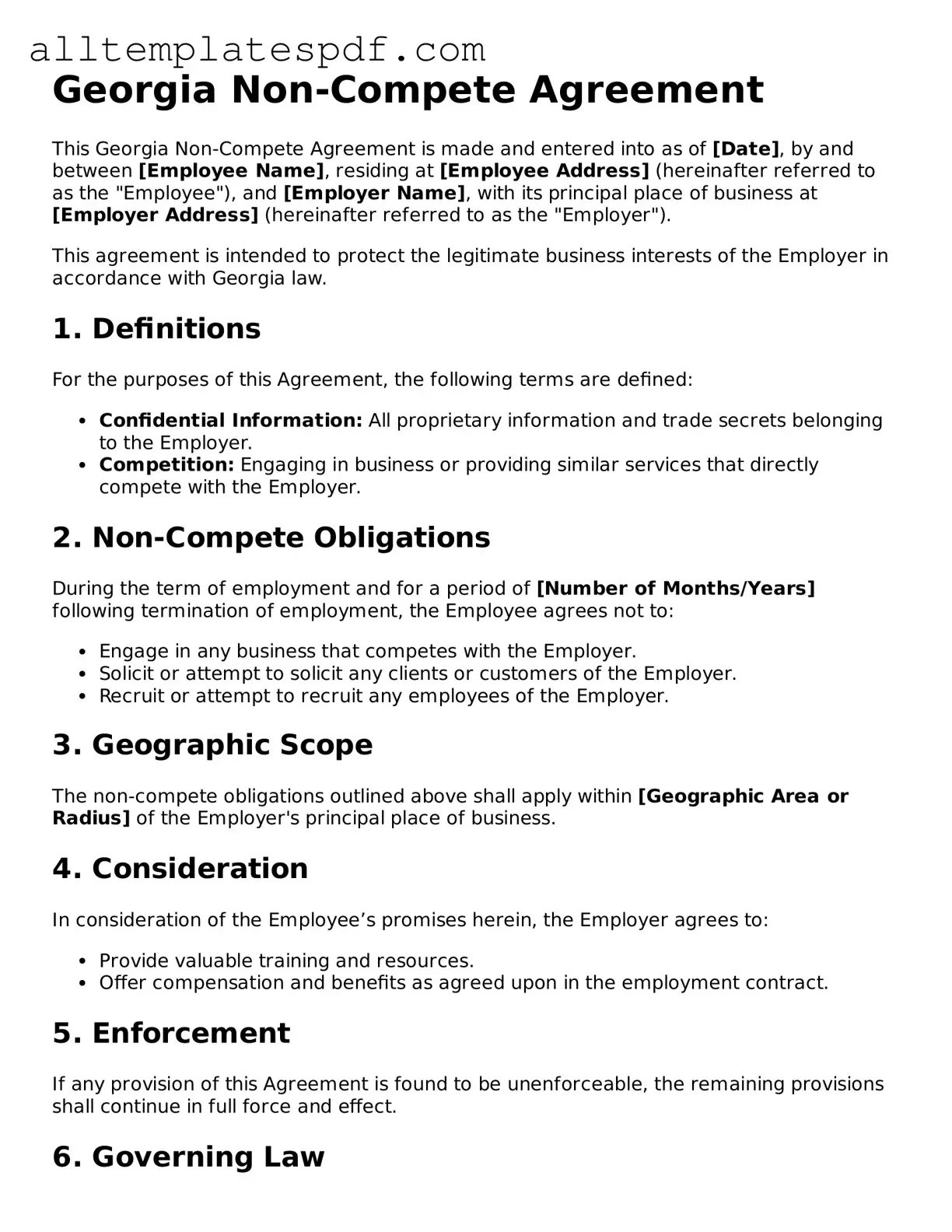When individuals fill out the Georgia Non-compete Agreement form, several common mistakes can occur, potentially impacting the enforceability of the agreement. One significant error is failing to clearly define the scope of the restricted activities. A vague description can lead to confusion about what actions are prohibited, which may ultimately render the agreement unenforceable.
Another frequent mistake is neglecting to specify the geographic area covered by the non-compete clause. Without a defined location, the agreement may be seen as overly broad, which courts often view unfavorably. It is essential to ensure that the geographic limitations are reasonable and aligned with the business interests at stake.
People often overlook the importance of including a reasonable duration for the non-compete restrictions. If the time frame is excessively long, it may be deemed unreasonable by a court. Typically, a duration of one to two years is considered acceptable, depending on the nature of the business and the industry.
Additionally, many individuals fail to consider the consideration provided for signing the agreement. In legal terms, consideration refers to something of value exchanged between the parties. If an employee signs a non-compete agreement without receiving adequate compensation or benefits, the agreement may not hold up in court.
Another common pitfall is not consulting with a legal professional before finalizing the agreement. Legal experts can provide valuable insights and ensure that the document complies with Georgia law. Skipping this step may lead to critical oversights that can jeopardize the enforceability of the agreement.
People also sometimes neglect to keep a copy of the signed agreement for their records. Without a copy, it can be challenging to reference the terms later, should disputes arise. It is advisable to maintain a personal copy, along with any correspondence related to the agreement.
Furthermore, individuals may mistakenly assume that non-compete agreements are universally applicable to all employees. However, Georgia law has specific requirements that must be met for these agreements to be enforceable. Misunderstanding these legal nuances can lead to invalid agreements.
Some may also fail to update the agreement to reflect changes in the business or employment relationship. As circumstances evolve, the terms of the non-compete should be revisited and revised as necessary to ensure they remain relevant and enforceable.
Lastly, individuals might not fully understand the implications of signing a non-compete agreement. It is crucial to comprehend how these restrictions can affect future employment opportunities. Taking the time to evaluate the potential consequences can lead to more informed decision-making.
In summary, being mindful of these common mistakes when completing the Georgia Non-compete Agreement form can significantly enhance the likelihood of the agreement being upheld in a court of law. Careful attention to detail and seeking professional guidance can help individuals protect their interests while adhering to legal requirements.

